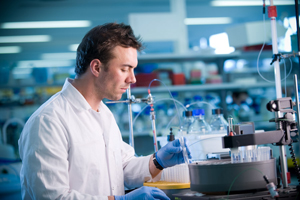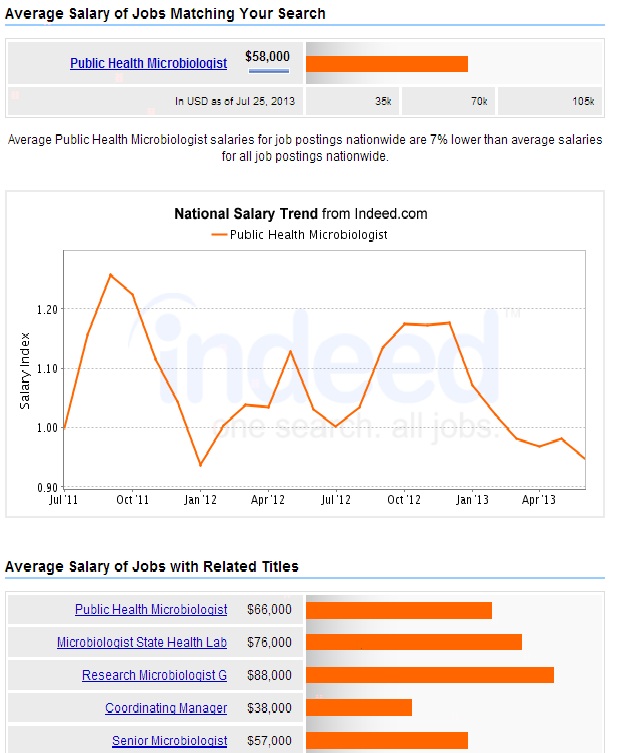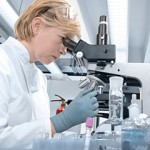Many microbiologists do basic research, with the idea of increasing scientific knowledge…
 As a public health microbiologist, you will work in the research and development field of public health. Many microbiologists do basic research, with the idea of increasing scientific knowledge in public health. Others do applied research, utilizing the knowledge from basic research in the field to solve problems in public health.
As a public health microbiologist, you will work in the research and development field of public health. Many microbiologists do basic research, with the idea of increasing scientific knowledge in public health. Others do applied research, utilizing the knowledge from basic research in the field to solve problems in public health.
For example, some microbiologists will do research to learn how to protect the environment, such as how to protect water from being polluted in high population areas. As the same time, the public health microbiologist helps to protect local communities from illness and disease.
Modern microbiologists utilize computers and many types of lab instruments to conduct experiments and do analysis. Many use powerful electron microscopes to analyze bacteria.
Public Health Microbiologist Degree
To become a public health microbiologist, you will need to earn your bachelor’s degree in microbiology, or biochemistry. Most students who study microbiology will learn about microbial genetics and microbial physiology, and also virology and environmental microbiology. You also will need to take biochemistry, chemistry and physics.
SEE ALSO: Online MPH Program for Public Health Microbiology
To work at a university or to do much independent research, you will need to have a Ph.D. in the field. It also is useful to have a master’s degree in public health.
Some of the specialized types of microbiologists include:
-
Bacteriologists
-
Clinical microbiologists
-
Immunologists
-
Mycologists
-
Virologists
YouTube Special Feature
Neal Chamberlain is a Professor of Microbiology at A.T. Still University
Public Health Microbiologist Job Description
As a microbiologist, you will do some or all of the following:
-
Conduct highly complex research, such as creating new drugs to deal with diseases and public health problems
-
Watch over the work of technicians to ensure accuracy of results
-
Isolate/maintain bacteria cultures and other microorganisms for study in the future
-
ID and classify new microorganisms that are found in specimens taken from water, food and humans
-
Present new research findings to scientists, government and the public
-
Keep current with findings from other types of research groups
Public Health Microbiologist Skills and Qualifications
Some of the skills that you will need include:
-
Analytical skills
-
Critical thinking skills
-
Interpersonal skills
-
Perseverance
-
Problem solving skills
-
Speaking skills
-
Writing skills
Public Health Microbiologist Certifications
Most Ph.D. holders in microbiology start their careers in postdoctoral research for two or three years. They have to work with highly experienced scientists to gain more understanding of the research field. These positions allow you the chance to publish various types of research, which is what you will need to get a permanent job in microbiology research, or a position at a university.
Public Health Microbiologist Salary

Indeed.com states that the average salary for microbiologists is $48,000. However, the median salary as reported by the Bureau of Labor Statistics is $65,900. The top 10% earned more than $115,000 per year.
The following wages applied for microbiologists in different types of organizations:
-
Federal government: $94,000
-
R&D: $68,000
-
State government: $63,900
-
Pharmaceuticals: $62,300
-
Colleges: $49,000
Public Health Microbiologist Employment Outlook
Employment of microbiologists is expected to increase by 13% by 2020, which is about average. There should be a higher need for microbiologists for basic research and for public health. This is because governments are becoming more aware that disease prevention is less expensive than treatment.
Microbiologists also are going to be needed to conduct research and to come up with new medicines and treatments for our public health challenges.
As of today, there are about 20,300 microbiologists jobs in the US, and they work in the following areas:
-
R&D: 25%
-
Pharmaceuticals: 23%
-
Federal government: 14%
-
Colleges: 7%
-
State government: 7%
Associations
-
American Society for Microbiology: This is the largest association for research microbiologists in the US.
-
Society for General Microbiology: A large society for microbiologists in the UK.
-
Society for Applied Microbiology: The voice of applied microbiology in the UK.
-
International Union of Microbiological Societies: Promotes the study of the microbiological sciences throughout the world.
Additional Resources
-
Microbiology: A journal dedicated to the latest research findings in microbiology.
-
Department of Microbiology at NYU: A good microbiology resource funded by New York University.
-
Society for General Microbiology: A professional organization for scientists who work in all aspects of microbiology, including public health.
-
Science Daily: Latest news on microbiology.
YouTube Video Resources






